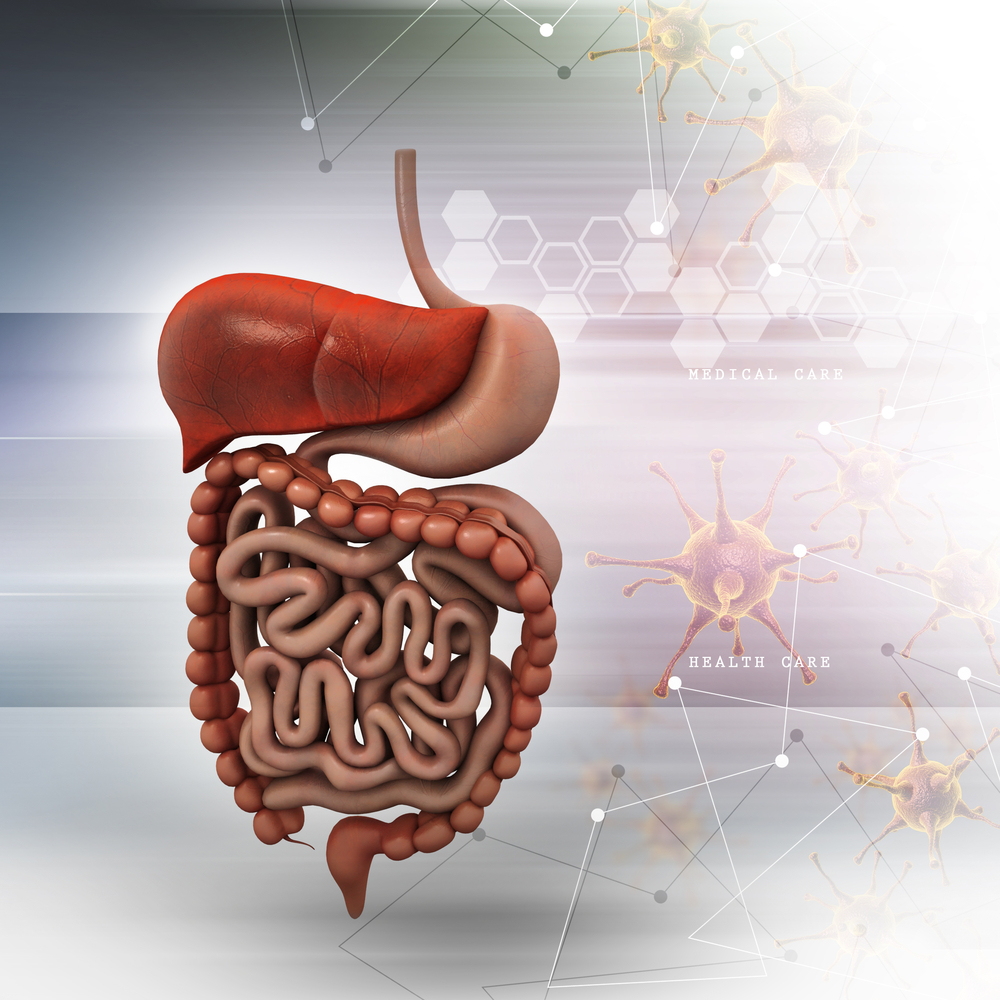GI Problems Common and ‘Intrude’ on Daily Life, CF Survey Finds

Gastrointestinal (GI) problems are common to people with cystic fibrosis (CF), especially those with pancreatic insufficiency, and can considerably disrupt daily life, an online survey by researchers in the U.K. reported.
More attention needs to be given to the disease’s GI complications, the research team said. CF is primarily seen as a respiratory disease, but GI symptoms like stomach cramps and bloating can considerably affect patients’ self-image and social interactions.
The study, “How can we relieve gastrointestinal symptoms in people with cystic fibrosis? An international qualitative survey,” was published in the journal BMJ Open Respiratory Research.
Most CF therapies focus on the lungs, but statistics indicate that around 65% of patients develop a series of GI symptoms over the course of the disease, including flatulence, bloating, abdominal pain, and gurgling.
Finding new ways to relieve these symptoms was a top 10 research priority in a James Lind Alliance Priority Setting Partnership in CF that gathered feedback from clinicians and patients via surveys and workshops, and carried out by the same group of researchers.
Now, the team reported the findings of a follow-up survey drawn from points raised in the earlier one, to determine the prevalence and impact of GI symptoms in CF, and to collect ideas for approaches that might better address these problems.
The survey, conducted over four weeks between June and July 2018, was distributed online to the CF community, including adults and children with CF, their family members, and healthcare professionals. Its questions aimed to assess the impact of GI problems on daily life.
A total of 276 respondents from 15 countries (median age of 37) responded to survey questions: 90 (33%) were CF patients, 79 (29%) were family members, and 107 (39%) were health professionals. Almost half (44%) of these professionals were dietitians.
A most of CF patients and family members reported pancreatic insufficiency (84%) with this disease, which affects patients’ ability to digest food. Diagnoses of other GI complications, including distal intestinal obstruction syndrome (DIOS) and CF-related liver disease (CFRLD), were noted by 39% and 20% of these respondents, respectively.
“All of the participants who reported pancreatic insufficiency also reported having experienced GI symptoms at some time,” the investigators wrote.
The most common GI symptoms negatively affecting life quality, these respondents said, were stomach cramps or pain, bloating, and a “combination of other symptoms” that included diarrhea, nausea, vomiting, gas, and bloating.
Absences from school or work due to these symptoms were reported by 66% of patients and families, and a similar proportion agreed that GI symptoms affected their “confidence or self-image (65%),”the researchers wrote.
“Constant stomach pain, enormous bloating, unpredictable bowel movements — it has been debilitating for my daughter, who can’t often exercise properly, which is bad for her chest and general health and wellbeing. She often misses social events,” a parent of a child in England responded.
“I cannot go to work when I have stomach pain and cramps as the pain makes it impossible to concentrate,” a U.K. patient wrote.
Healthcare professionals listed a poorer appetite, bloating, and constipation as the three most common GI complaints given them by patients.
Nearly all these professionals (94%) thought medications like laxatives and antacids help to ease these symptoms. Slightly more than half, 58%, of patients and their families felt the same.
Less than half (46%) of the patient/family respondents reported feeling that non-medical interventions, such as changes in diet and exercise, helped ease symptoms.
More than half (52%) of the healthcare professionals responding felt diet changes could help ease these symptoms.
“Our survey has shown that GI symptoms among our participants are prevalent and intrude on daily lives” of people with CF, investigators wrote.
“There is a need for well-designed clinical studies to provide better evidence for management of GI symptoms and complications,” they added.







